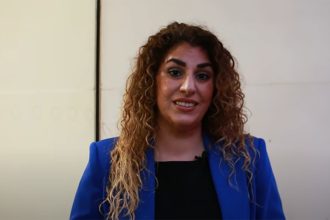Nigeria’s Education Minister, Prof. Tahir Mamman, has announced that the country’s education system is being steered towards technology-enhanced learning to foster students’ critical thinking and creativity.
The Minister made this statement during a tour of the FCT Smart School in Karshi, Abuja, emphasising that such institutions represent the future of education in Nigeria.
He noted that these schools integrate personalized learning, incorporate technology from the early stages, and make learning interactive from the foundation through to university levels.
“It will help nurture their thinking and creativity. So this is the direction our education is going,” Prof. Mamman said.
The Minister urged teachers to take their roles seriously, noting that the school would serve as a model and training ground for educators and institutions in the surrounding areas.
He also reiterated the government’s commitment to establishing a smart school in each state, noting that 26 are already operational, with construction ongoing for the remaining ones.
“This is part of the legacy this government is delivering to Nigerians, which is to make provision for a digitalized school system for pupils to be trained in the use of technology right from kindergarten to basic and junior secondary school,” he said.
According to him, the teachers of the schools will not only be involved in the delivery of lessons but the development of what the kids would be taught.
“This is one of the unique features of this institution; you have facilities that will allow you to develop the content of what you are going to offer within the Nigerian context, values, and national curriculum,” he said.
He further stated that smart schools will combine conventional and vocational aspects of education so that, at completion, the students will have skills that can help them in life.
The minister said the government was aware of security challenges in the country and has put together elaborate security arrangements for all of the smart schools across the country, especially the one in Karshi.
“Both armed and unarmed security guards are being engaged while a partnership with host communities is being forged to give the schools all the necessary security.”
He said strong community engagement was important for both security and for the institutions to impact on the communities.
Also Read: Commission, Korea sign MoU to establish Smart Schools in Nigeria
“Apart from strengthening the economy of Karshi, it’s a learning center set up for the training of teachers and other people within the Karshi area. So there’s this sense of ownership by the community, which will help a lot in synergizing on many fronts.
“We are in collaboration with the community and the hired vigilantes as far as the security of this school is concerned,” he said.
Contract Revocation
The Minister of State for Education, Dr. Yusuf Sununu, announced that the Federal Government has revoked the contract of the company handling the smart school project in Kebbi State, re-awarding it to a new contractor.
He also mentioned that the Bayelsa State project is currently undergoing due process for a similar revocation and re-award to ensure that no state is left behind in the implementation of technology-enhanced education. He called on some states whose smart schools have been completed and handed over, to supply the federal government with 75 teachers to be trained to run the schools.
“I call on other states to emulate the FCT administration, which is already providing roads and hostel accommodation to expand the scope of the smart school in its domain with a full complement of staff,” Dr. Sununu said.
The FCT Smart School, fitted with classrooms, a science and technology lab, a vocational training center, a studio, smart boards, Internet facilities, an ICT training center, a standby generator, a school clinic, and a kindergarten playground, as well as facilities for People Living With Disabilities (PLWD) to enhance learning for learners beginning from kindergarten to secondary school, is scheduled to commence classes in September 2024.

The Smart School project was initiated and funded by the Universal Basic Education in collaboration with Korea International Cooperation Agency (KOICA) to increase the capacity of teachers in the development and use of ICT content and to improve the access of teachers and pupils to quality teaching and learning materials.






